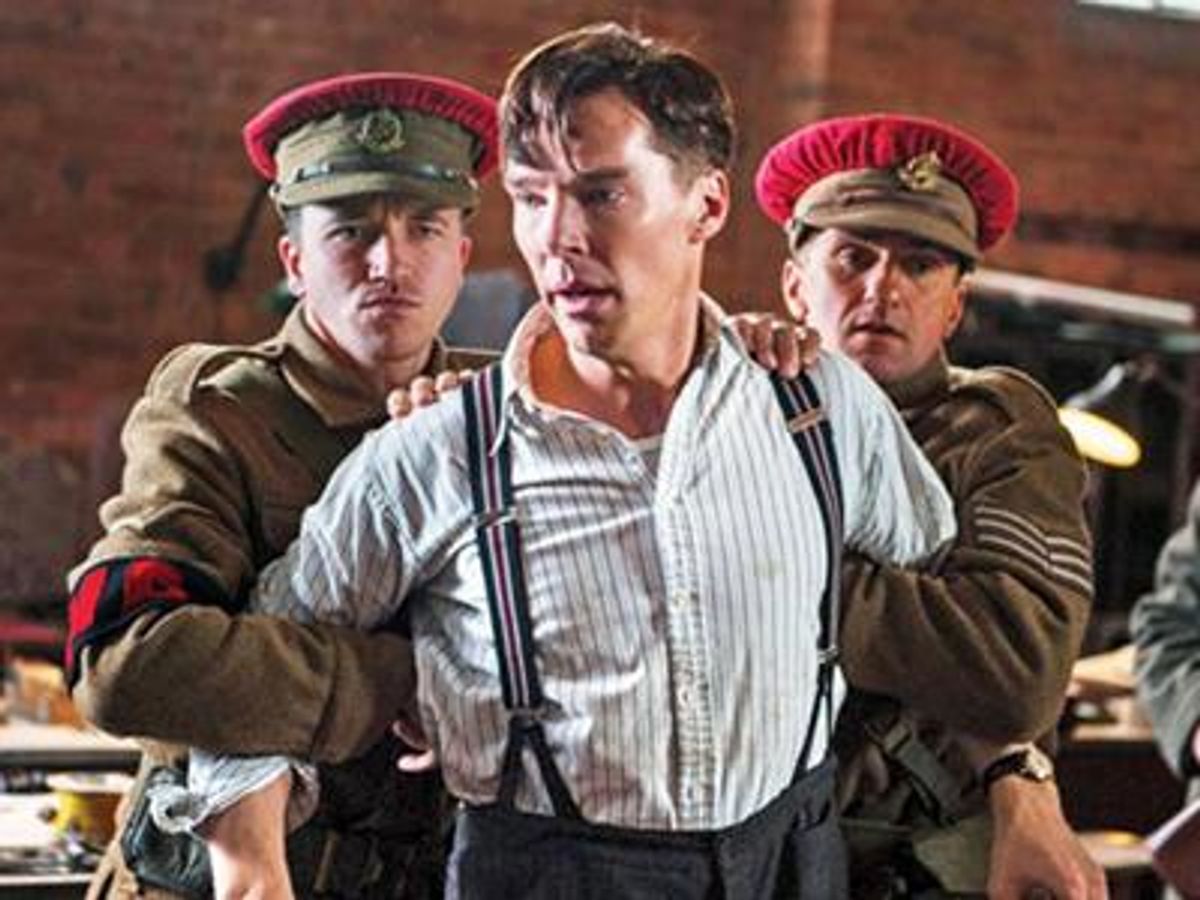
Alan Turing brought the Nazi effort to its knees by deciphering its uncrackable Enigma Machine. The new biopic breaths life into this original gay geek.
November 28 2014 10:00 AM EST
November 17 2015 5:28 AM EST
By continuing to use our site, you agree to our Private Policy and Terms of Use.

It started with an apology.
Back in 2009, Ido Ostrowsky came across an article in The Telegraph in which the U.K.'s then-Prime Minister Gordon Brown was apologizing for the treatment of Alan Turing, the man who had invented a machine that was the catalyst for the early computer. Ostrowsky, who was working below-the-line in films and TV shows at that point, learned that Turing built a massive device that deciphered what was thought to be an uncrackable code generated by the Enigma Machine, used by Nazis during World War II to communicate and strategize. The effort launched the turning point in the war for the Allied powers, and his work inspired generations of future programmers to code. In fact some of the earliest computers invented were called Turing Machines.
"I was sort of stunned that as a gay man, I didn't know who Alan Turing was," Ostrowsky says.
But the reason Brown was apologizing publicly to this brainy war hero decades after his death stemmed from a grassroots movement that not only educated the public about Turing's accomplishments, but also about the fact that less than a century ago someone so highly regarded could be persecuted by his own government, simply because he was gay. Turing was arrested and tried for homosexuality in 1952. He chose to be chemically castrated rather than go to prison, but because homosexuality was seen as a liability, Turing lost his security clearance, and thus his job with the British government.
The suffering was too much to bear. Turing killed himself in 1954 at age 41.
Ostrowsky was blown away by what he'd learned. He immediately told his friend-turned-producing partner Nora Grossman about Turing's story. The two, who were between jobs at the time, optioned Andrew Hodges's biography about Turing, but then had to find the right screenwriter.
"Nora was hosting a party, and someone asked her, 'Are you working?' And she didn't want to admit that she was still looking for a job," Ostrowsky recalls, "so she mentioned that she optioned Alan Turing's biography and how she thought it'd make a great film. Graham Moore happened to be at the party, said 'One day when I'm famous, I'd like to write this story,' and she said, 'Well today's your lucky day.'"
From there, the momentum around the film project as well as the education campaign of Turing's life was gaining speed. Soon enough, the right star exploded: Benedict Cumberbatch signed on to play the lead role, with his pal and fellow star Kiera Knightley as the equally brainy Joan Clarke. Their energy leaps off the screen in The Imitation Game, a beautifully told film that examines three key moments in Turing's life, but focused mainly on the efforts at Bletchley Park during World War II.
Before this film, there had already been movies made about the code cracking genius, but they did not address Turing's sexuality.
"Turing being gay is such a critical part of this story, and I don't believe you can tell his story without fearlessly addressing his homosexuality," Ostrowsky says. "You have to address it, and tackle it head-on. That's where a lot of the power of his story comes from."
Right at the same time The Imitation Game wrapped principle shooting, Queen Elizabeth issued a royal pardon to Alan Turing. Cumberbatch, with his fiery passion, said he was outraged by the move.
"It's an insult, for anybody of authority or standing to sign off on him with their approval and say, 'Oh, he's forgiven,'" he told Out earlier this year. "The only person who should be [doing the] forgiving is Turing, and he can't because we killed him. And it makes me really angry. It makes me very angry."
Cumberbatch, who dove into research for the role, said Turing was a great role model for anyone who is different. And even with all of his awkwardness, Turing essentially invented the idea of a computer.
"I mean, God knows, he probably would be celebrated as someone like Bill Gates," Cumberbatch added. "Without the shadow of a doubt, he would be held as a totem of the modern world."